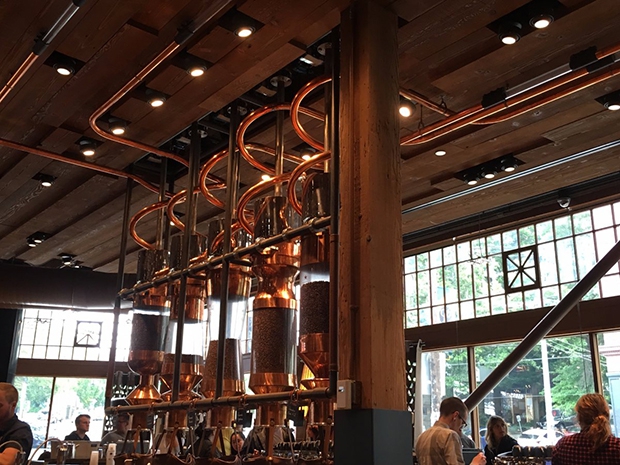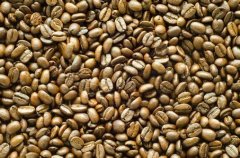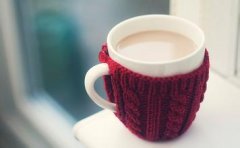Starbucks barreled aged coffee? Allow me to drink a cup of coffee of'82 to suppress shock.
Guide: Starbucks recently announced that it will sell two drinks made from coffee beans ripe in whisky buckets at a Roastery store in Seattle, USA. Bagged whisky buckets of raw beans are also sold.
Starbucks placed a batch of selected Sulawesi beans in oak barrels provided by Woodinville Whiskey, a local spirits distiller in Washington state, and ripened for weeks before baking. The roasted coffee beans no longer contain alcohol residue, but still retain the complex aroma of whisky.

From March 6, some consumers will be able to drink coffee "brewed" in oak barrels at Starbucks.
Whisky barrel aging technology has been widely used in the production of wine, beer, gin and even chocolate, and coffee may be the next popular drink affected by this technology.

The process of making aged coffee is like this: unroasted coffee beans are placed in used wine or spirits barrels and fermented for several weeks, during which time manual stirring is required to ensure that the surface of the coffee beans is in contact with the inner wall of the barrel.
The aroma of the original wine or spirits in the barrel is transferred to the coffee beans, which are roasted to remove the alcohol, while giving the coffee beans a "mixed soil and oak aroma" that the traditional baking process does not have.
It is reported that Starbucks uses 800 pounds of Sulawesi beans at a time to get the taste of whiskey.

Starbucks says it is the first company to try using barreled aged coffee, although this is somewhat absolute, as many roasted cafes in the United States have been experimenting with this method since 2012. but Starbucks' move may mark the beginning of this approach into the mainstream.
Ceremony Coffee Roasters of Annapolis is generally considered to be the first American coffee shop to use barrel aging and roasting technology to make coffee, and other early experimenters included the Dark matter Cafe in Chicago (Dark Matter) and the Modern time Cafe in San Diego (Modern Times), a process refined by hundreds of coffee roasters to what it is today.
Currently, aged coffee is available only for a limited time at Starbucks' Roastery store in Seattle, offering cold-extracted coffee and hot coffee with milk, both with vanilla syrup. A medium cup of aged coffee costs $10, or you can buy the beans at $3.7 an ounce.

(picture from: Business Insider)
Roastery is a concept put forward by Starbucks in 2014, focusing on the baking process, and the corresponding Chinese brand is "Coffee roasting Workshop and Zhenxuan Restaurant". In Roastery, consumers can choose different coffee beans and different brewing methods, and witness the complete process of coffee making.

(picture from: Business Insider)
The first Roastery, which opened in Seattle in 2014, covers an area of 1400 square meters, which is also seen as part of Starbucks' foray into the high-end coffee market. Roastery in Shanghai is expected to open this year, about twice the size of a Seattle store.

Judging from Starbucks' past style, there is still a high chance that Chinese consumers will taste Starbucks aged coffee. For example, in 2015, Starbucks put cold brewed coffee ("cold extracted iced coffee") on its North American stores. A year later, the coffee, which is made of coffee beans and boiled in cold water for at least 20 hours, is on sale at Chinese mainland's Zhenxuan stores like beer.
Including the now popular "Flat White", which first went on sale in North America in January last year, and then appeared in Starbucks' Chinese stores ahead of National Day.
According to this routine, aged coffee is expected to hit the Chinese market as soon as this year.
If the inscription and matching pictures are not specified, they are all from Starbucks' American website.
Important Notice :
前街咖啡 FrontStreet Coffee has moved to new addredd:
FrontStreet Coffee Address: 315,Donghua East Road,GuangZhou
Tel:020 38364473
- Prev

Honduran coffee exports achieved good results in the first five months of this year.
According to official sources, in the first five months of the 2016-2017 harvest, Honduran coffee exports totaled US $451.37 million, an increase of 52.5% and 28.8% in volume compared with the same period last year. According to the Honduran Coffee Association (Ihcafe), from October 1 last year to February 28 this year, Hongguo exported a total of 3.09 million metric tons of coffee, the same as last year.
- Next

Venice living room 300 years Fulian Flower God Coffee landed in Taiwan
90% tourists visit the coffee shop that Venice must visit! A coffee shop with a history of nearly 300 years and known as the "living room of Venice" has officially come to Taiwan. The 100% original Italian menu can taste Hemingway's and Shaquille's favorites in Taiwan. Want to have an aperitif in the evening, like Ms. Coco Chanel, or like the well-known novelist Heming
Related
- Workers collapse! Lucky suspects that it will introduce freshly cut fruits?!
- 1-point subsidy recipients wear thousand-yuan watches?! Local response: For low-income households
- Can lightly roasted coffee beans be used to extract espresso? How finely should you grind high-quality coffee beans to make Italian latte?
- What is the difference between the world's top rose summer coffee and Yejia Shefi? What are the flavor characteristics of Yega Shefi coffee and Panama rose summer?
- The ceremony is full! Starbucks starts to cut the ribbon at a complimentary coffee station?!
- A whole Michelin meal?! Lucky launches the new "Small Butter Apple Crispy Latte"
- Three tips for adjusting espresso on rainy days! Quickly find the right water temperature, powder, and grinding ratio for espresso!
- How much hot water does it take to brew hanging ear coffee? How does it taste best? Can hot water from the water dispenser be used to make ear drip coffee?
- What grade does Jamaica Blue Mountain No. 1 coffee belong to and how to drink it better? What is the highest grade of Blue Mountain coffee for coffee aristocrats?
- What are the flavor characteristics of the world-famous coffee Blue Mountain No. 1 Golden Mantelin? What are the characteristics of deep-roasted bitter coffee?

